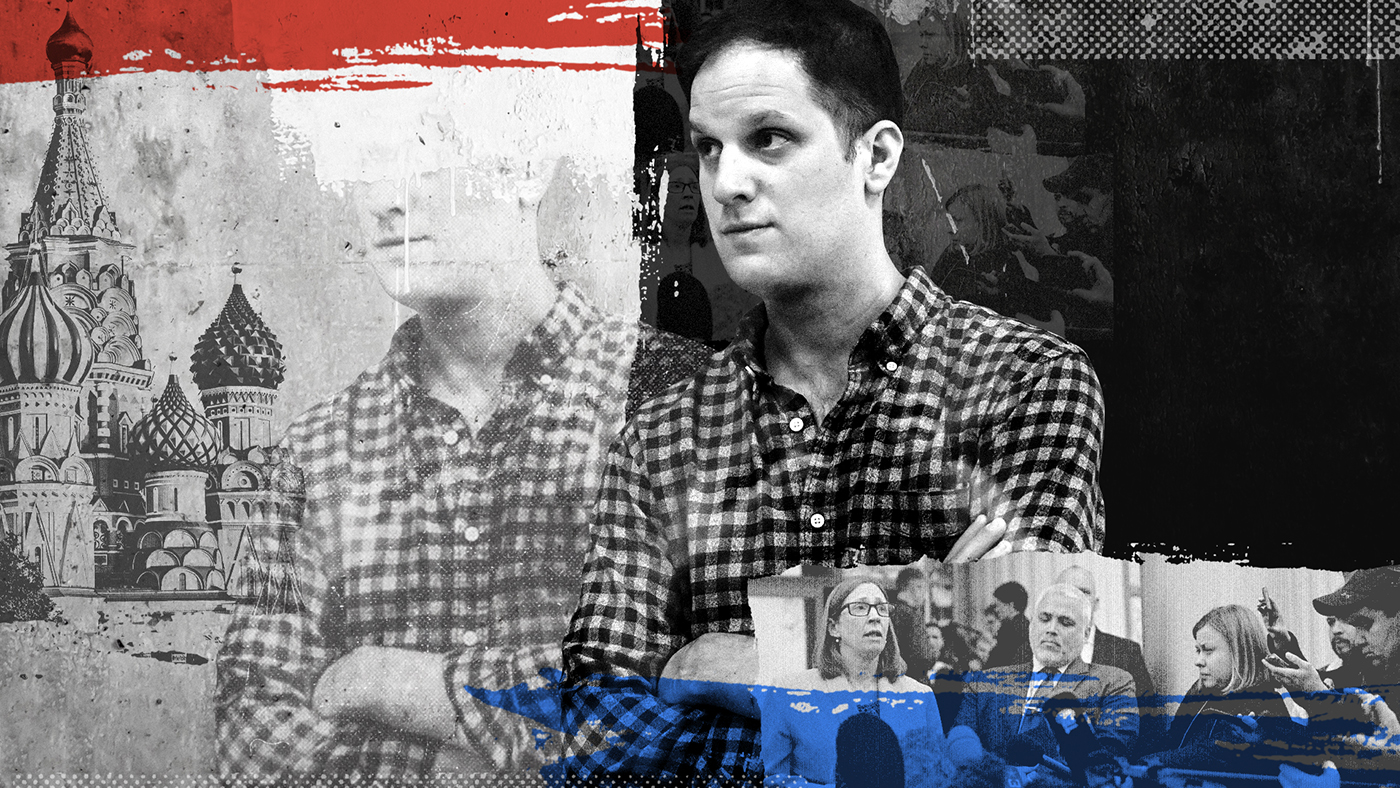Evan Gershkovich's career and wrongful detainment in Russia
How the journalist landed his dream job in Russia, only to be arrested for his coverage


A free daily email with the biggest news stories of the day – and the best features from TheWeek.com
You are now subscribed
Your newsletter sign-up was successful
While on assignment on March 29 in Yekaterinburg, Russia, Wall Street Journal reporter Evan Gershkovich was detained by the Federal Security Bureau, accused of espionage. Immediately, the Journal and the Biden administration denied the allegations and demanded that Gershkovich, 31, be released.
The New Jersey native remains in Russian custody, with his most recent courtroom appearance on April 18. The judge rejected Gershkovich's appeal to lift his pretrial detention, and he was sent back to the Lefortovo Prison in Moscow. His lawyer, Maria Korchagina, said the reporter was prepared to "assert his right for free journalism" and "to defend himself."
Gershkovich is the first American journalist detained in Russia on espionage charges since the Cold War, and if convicted, faces up to 20 years in jail.
The Week
Escape your echo chamber. Get the facts behind the news, plus analysis from multiple perspectives.

Sign up for The Week's Free Newsletters
From our morning news briefing to a weekly Good News Newsletter, get the best of The Week delivered directly to your inbox.
From our morning news briefing to a weekly Good News Newsletter, get the best of The Week delivered directly to your inbox.
The job of his dreams
The son of Soviet-born Jewish émigrés, Gershkovich grew up in Princeton, New Jersey, and spoke Russian at home. He was a high school soccer star, who went on to play at Bowdoin College in Maine, where he studied philosophy and English. After graduating in 2014, he moved to Bangkok for a fellowship, then headed to New York City to break into journalism. Gershkovich started as a news assistant at The New York Times, then, ready for a new challenge, landed a job with The Moscow Times. "He loved Russia and he wanted to report from here," former colleague Pjotr Sauer told the Journal.
He quickly made friends in Russia, who called him Vanya, and also started doing more research into his family's history in the country. People close to him said when he started at the Journal in Jan. 2022 to cover Russia and Ukraine as a Moscow-based correspondent, it was his dream job. "He felt like not only was this a moment in time in Russia where the country is very interesting but that he was a person who could really bridge the gap between the U.S. audiences and Russia," friend Jeremy Berke told the Times.
Just a month after Gershkovich began working at the Journal, Russia invaded Ukraine. Since then, his articles for the Journal have covered topics like the Russian military's artillery shortage and protests against Russian President Vladimir Putin. Gershkovich, who assumed his phone was tapped, shared with co-workers and friends that while on an assignment, he had been followed by Russian security officers, with some filming his movements. His latest article, published the day before his arrest, was titled, "Russia's Economy Is Starting to Come Undone."
'I am not losing hope'
Press freedom organizations have called Gershkovich's detainment "unwarranted and unjust," as well as a "significant escalation" in the Russian government's "anti-press actions." The U.S. State Department has declared him to be wrongfully detained, and with this designation, the Office of the Special Presidential Envoy for Hostage Affairs is now handling his case. In a statement, Gershkovich's parents and sister said they appreciated President Biden calling to let them know the U.S. government is "doing everything in its power" to bring Gershkovich home as soon as possible, adding that "there is a hole in our hearts and in our family that won't be filled until we are reunited."
A free daily email with the biggest news stories of the day – and the best features from TheWeek.com
On April 14, Gershkovich's family received a letter from him, the first direct communication since his arrest. "I want to say that I am not losing hope," he wrote in Russian. "I read. I exercise. And I am trying to write. Maybe, finally, I am going to write something good." He also teased his mother, saying, "Mom, you unfortunately, for better or worse, prepared me well for jail food. In the morning, for breakfast, they give us hot creamed wheat, oatmeal cereal, or wheat gruel. I am remembering my childhood." Gershkovich ended his note by telling his family he loves them "very, very much and hug you tightly."
Catherine Garcia has worked as a senior writer at The Week since 2014. Her writing and reporting have appeared in Entertainment Weekly, The New York Times, Wirecutter, NBC News and "The Book of Jezebel," among others. She's a graduate of the University of Redlands and the Columbia University Graduate School of Journalism.
